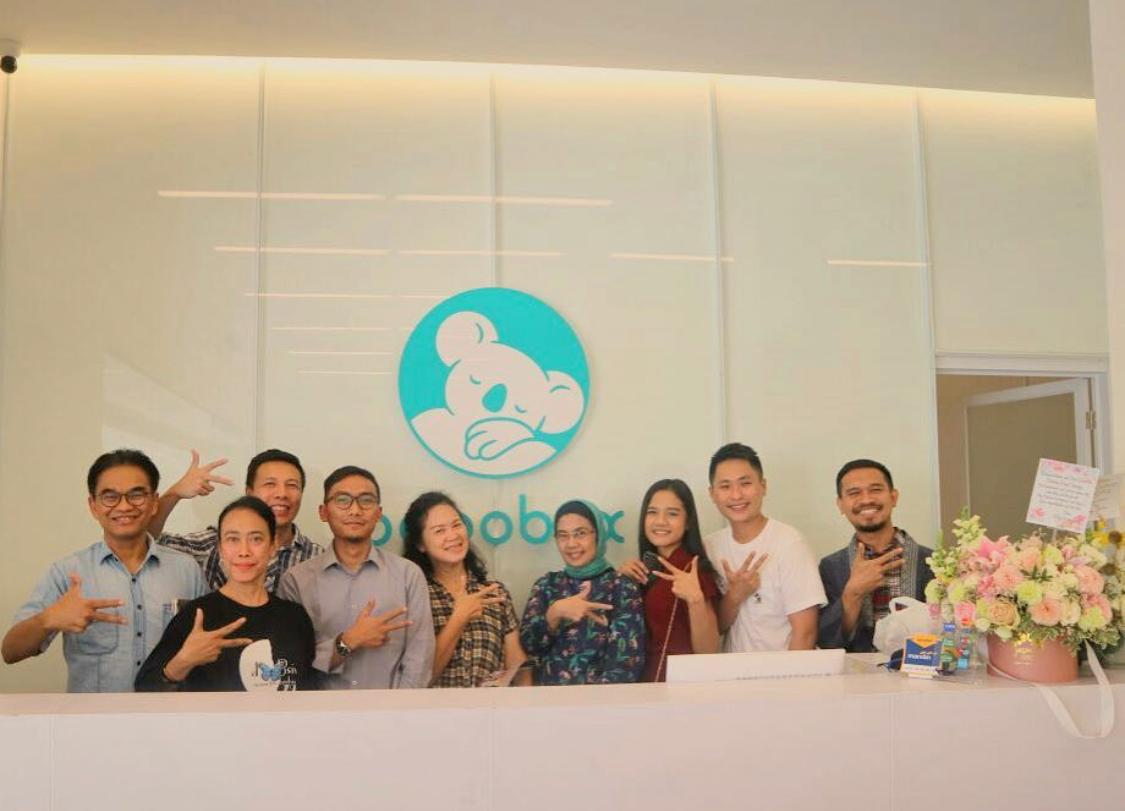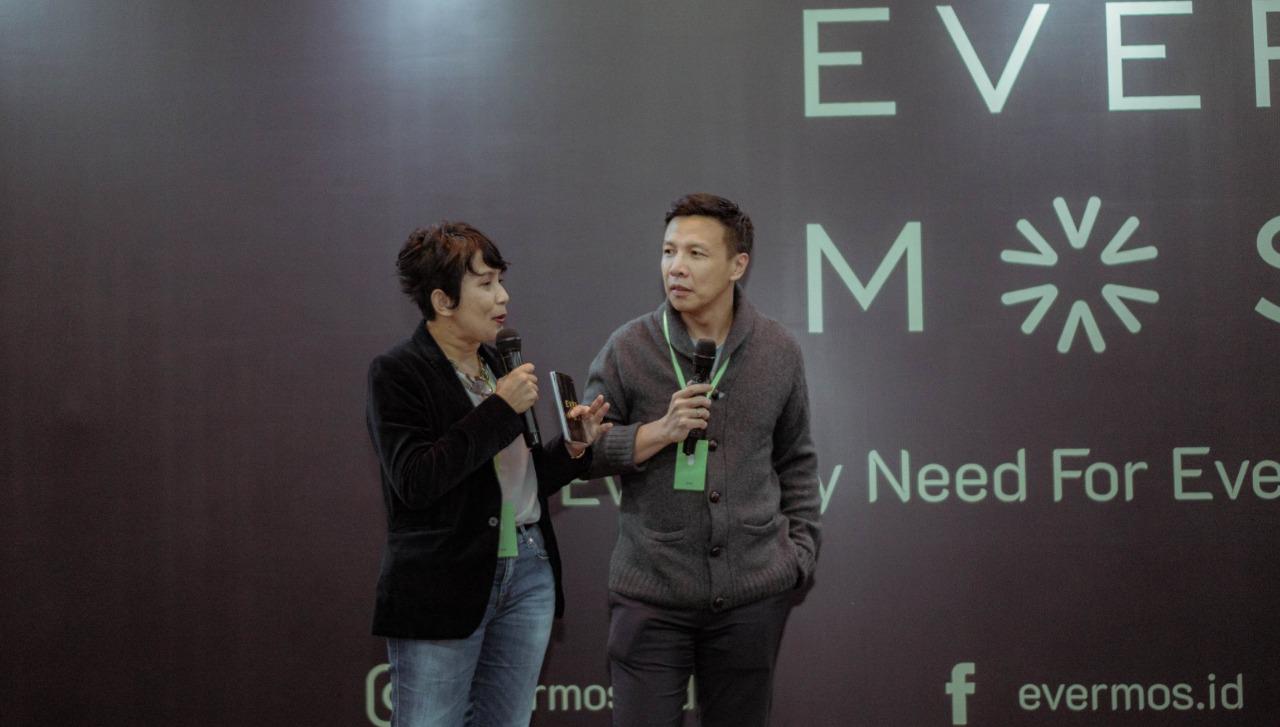Arip Tirta: Technology Can Change People and Businesses Quickly and Significantly
Starting from Silicon Valley, Arip Tirta specializes in venture capital and lending, equity firms, start-ups, entrepreneurs, financial management and business models.
This article is part of DailySocial Mastermind Series featuring innovators and leaders in the Indonesian technology industry to share stories and perspectives.
Silicon Valley is the 'paradise' of the startup industry and Arip Tirta has been exploring the region for almost 7 years, analyzing the market for leading US-based capital markets companies that lend to technology, life sciences and sustainable technology companies.
In 2011 he decided to go home and build his own business. He made his debut in the property sector with UrbanIndo, an online service that helps users to market, sell, and buy properties in Indonesia. After being acquired by another proptech startup 99.co, Arip continued his business in the accommodation sector, Bobobox. In addition to building a business, he is also actively investing in startups, including being directly involved in company operations at several startups.
Currently, Arip is focusing on Evermos, the first social commerce that empowers Small and Medium Enterprises and individuals, by connecting brand owners to retailers to end consumers through the platform. He has extraordinary enthusiasm in developing the SME ecosystem, and also plays a role as part of the commissioner of BRI Ventures to help build the VC ecosystem in Indonesia.
In addition to his experience in Silicon Valley, Arip Tirta specializes in venture capital, venture lending, equity companies, start-ups, entrepreneurs, financial management and business models. The DailySocial team had the opportunity to discuss business and future expectations for the Indonesian technology industry.
When did you first become interested in the technology industry?
I have an educational background in scientific computing. A combination of applied mathematics, statistics, and computer science. While in college, I always dreamed of going to Wall Street and becoming an entrepreneur trader. However, life doesn't always go according to plan. In my senior year of college, I had the opportunity to interview with one of the venture capital & private equity firms based in Palo Alto. At that time, my perspective on the technology industry was still limited, however, I was finally accepted because of my technical abilities.
My initial journey in the technology industry was as an analyst for a leading US-based capital markets firm that provided loans to technology, life sciences and sustainable technology companies. For the first few years, I was a generalist until I decided to focus on the technology industry in my third year. At that point, things started to feel more interesting. After almost 7 years of analyzing markets in Silicon Valley, I decided to go home and apply what I had learned there.
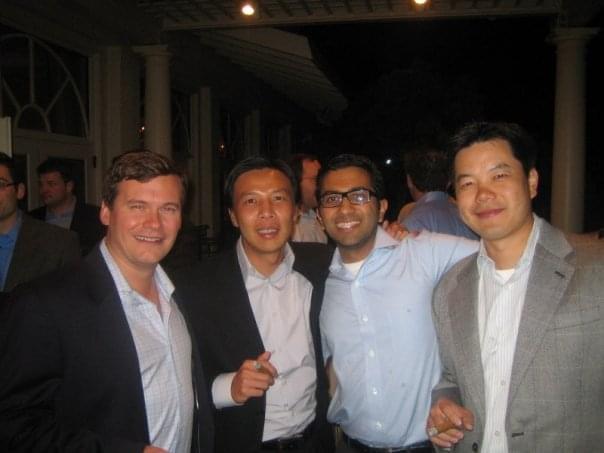 Hercules Capital 2008 annual meeting
Hercules Capital 2008 annual meetingAfter spending a long time in Silicon Valley, what convinced you to leave the area and return to Indonesia?
If there's one thing I learned in Silicon Valley, technology can change people and businesses quickly and significantly. For example, in terms of marketing. In an era when the internet is so exclusive, people have to spend a lot of money on advertising. Nowadays, there are more and more choices, there are many things you can do even with financial limitations. Technology is changing the way marketing works and this will continue to evolve.
In 2010, Indonesia experienced its first era of internet explosion, one of the historical moments was acquisition of Koprol by Yahoo! I watched the growth of Indonesian technology companies from afar and was quite impressed. With some serious consideration, I finally took a big decision and left Silicon Valley to contribute in my capacity with my experience to the Indonesian market.
How was your first experience in building a startup?
When we want to start something, there is no such thing perfect timing. Several months before leaving for my hometown, I had been working on several ideas and business plans, one of which was the real estate industry.
The appearance of Indonesia in 2010 was like the wild wild west where basic infrastructure was very limited. Therefore, we [technology activists] collectively try to develop the foundation. I did it in the property sector, then others also did it in various sectors. At the same time, we also need to educate the market. In this case, the market not only represents end users but also the government, including families, aka society.
When I set foot back in my homeland, I realized that I shouldn't compare the work culture here with that in Silicon Valley. Therefore, I do everything without high expectations, the important thing is that it runs smoothly. We founded UrbanIndo in 2011, an online service that helps users market, sell and buy property in Indonesia.
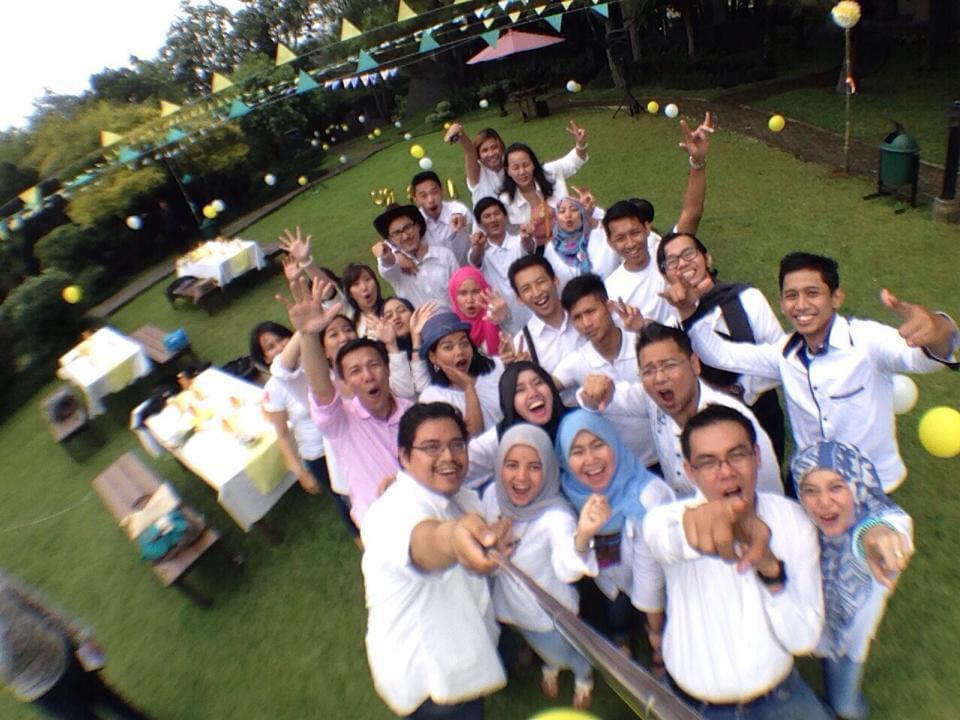 UrbanIndo's end of year activities in 2014
UrbanIndo's end of year activities in 2014First, I saw that the Indonesian property world lacked market data and decided to disrupt it so that more people could have more insight into this sector. UrbanIndo was built to be the best property site in Indonesia by redefining the way Indonesian people view property. In this way, all Indonesian people can make the best decisions regarding property investment. We focus on market insights, price changes, projections, undervalued property available, and so on.
We did everything in our capacity to build this platform, backed by Gree Ventures, IMJ Fenox, East Ventures, and leading angel investors. It was an exciting time for almost 7 years building the business until at the end of 2017, we finally decided to accept unsolicited offer from Singaporean property search startup 99.co.
Known to be active as an angel investor, you are also one of the Co-Founders of Bobobox and have directly contributed to its operations as Managing Director for almost a year. How do you manage time and interests?
When I was at UrbanIndo, I also ran angel investing. There are several sectors that are vulnerable to disruption. With bobobox, I was involved from the start. I see the travel industry is at its peak. Many people travel, just for content or in the hope of getting peace of mind. Then we discovered that expensive accommodation was a big problem in this segment. One way to overcome this problem is to maximize space, resulting in a cost-effective price offer.
Bobobox was founded in 2018, a new, young, sleek, agile and smart accommodation solution for everyone. Bobobox is an alternative accommodation for millennial travelers and smarttraveler who want to try something new and different. The platform was built to revolutionize sleep habits and help people sleep better and deliver more experiences through technology.
Angel Investing in Indonesia is increasingly popular because many startup founders have exit and individuals with abundant wealth who are increasingly interested in investing directly in startups. This is different from Silicon Valley, because there a full cycle has occurred from the founding of a startup to exit. Meanwhile in Indonesia, this year there could be a full cycle when the national unicorn/decacorn is successful exit on foreign exchanges.
As a social commerce company, Evermos focuses on empowering MSMEs and individuals on its platform, especially Muslim brands. Why did you decide to use this approach?
Flashback to Silicon Valley, I used to think about starting a business in the e-commerce realm. In each region, the sector usually comes first take off is e-commerce, also the first to become a unicorn. However, when I looked at the situation in Indonesia at that time, there were already several top players and if I had to add, there would not be a significant difference in terms of value proposition.
Fast forward to 2018, I see there are many pain points in the retail industry. There are many intermediaries required to complete the cycle from brand owner to end user. And I thought, how to disrupt this retail market? Many years have passed since e-commerce developed throughout Indonesia, but the percentage of online purchases is still not large enough. There are several reasons, one of which is humans as social and cultural creatures.
Back then, social commerce wasn't a thing yet. In fact, we are also trying to bring the positive impact of e-commerce to a larger market. Founded in November 2018, Evermos became the first social commerce to empower Small and Medium Enterprises and individuals, by connecting brand owners to retailers to end consumers through our platform.
We want to create an inclusive economy and prosperity by providing access, opportunities and training for individuals and SMEs to be more financially independent.
Indonesia is a country with the largest Muslim population in the world, therefore, we decided to become a sharia-based platform. However, this is not exclusive and is open to all types of traders regardless of the sharia basis. This approach is solely for the sake of making the platform more inclusive.
I decided to focus on SMEs because this industry contributes 60% of our GDP and absorbs around 97% of the domestic workforce. Not counting workers yet unskilled. Evermos is considered to be taking the hard road, it is much easier to reach global brands with a growth mindset and advanced technology. However, we ask ourselves what kind of impact we want to have, whether it produces short-term profits or long-term profits. Therefore, we decided to focus on local brands that can have an impact on the nation's economy.
We believe a group of people or SMEs working together with the right platform and incentives, can achieve something substantial. That's why we put our trust in social commerce, because this is a people's economy, where we can be a bridge for SMEs in the early stages. With Evermos, they can focus on production to create competitive prices with global players. Our sales channels are spread throughout Indonesia, so local brands will automatically have national reach. This is our value proposition.
My biggest fear from a tech startup or SME side is that our country becomes the sole consumer. We must be able to build value, not be sole traders. The Indonesian economy must have a positive impact, it is an important part of this nation.
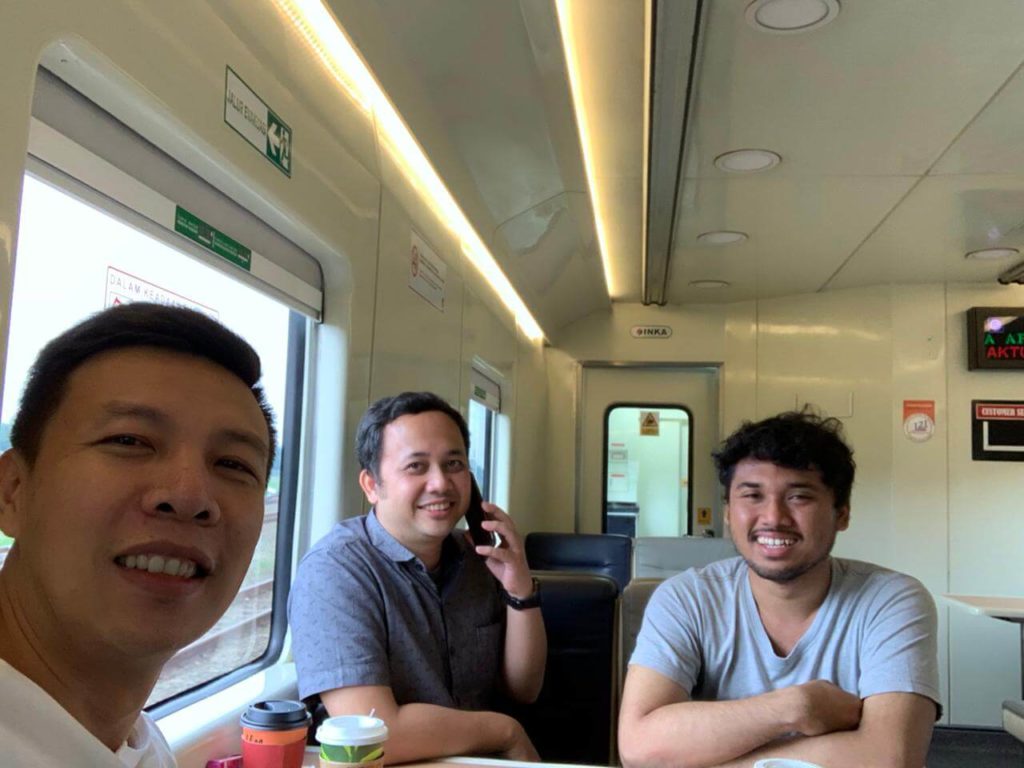 Evermos' first pitching trip of 2018
Evermos' first pitching trip of 2018You have navigated the property, accommodation and social commerce sectors. What has been the biggest challenge or valuable lesson from all these experiences?
Every industry has different problems. In fact, there are several similar problems that we must be aware of and improve collectively. In Indonesia, several startups usually experience difficulties in monetization. Our previous mistake was to think about market share and getting ahead first, and then think about monetization. This strategy has been proven in many countries. In fact, Indonesia is a unique nation, many people think internet solutions should be free. A strategy like this might work in other countries but in Indonesia it is a lucky break.
Second, human resources. Until now, Indonesia is still experiencing a crisis due to the lack of workers in the middle class. From the supply side, talent is still quite scarce, especially those with a technology background. I think these two problems occur in almost all sectors.
Experienced as venture capitalist and venture builder, How do you view the investment climate in Indonesia and the projected growth of the Indonesian technology industry in recent years?
As I said before, Indonesia has never created a full cycle in terms of venture investment. Starting from investment to harvest. This year will be a year of validation for unicorns/decacorns who already have IPO plans. Hopefully exit It can also bridge other startups for M&A activities. Indonesia is already a very attractive market, this is our way to spark more success stories that impact the entire ecosystem.
In the pandemic era, many people are looking for capital, while VCs are becoming more selective with their investments. Through two perspectives, how do you think a business is worthy of investment and what are the main values investors look for in a business/founder?
This pandemic is an anomaly and the first reaction is to wait and observe. As time goes by, investors are increasingly adapting and adapting to current conditions, seeing some companies able to survive with healthy growth. After all, there is a certain amount of money that must be disbursed to the company. When the waiting and watching period passed, investors began to enter selectively.
Currently, many startups are also raising funds, and the situation is expected to improve further. When it comes to VC valuation, it really depends on the market and personal experience. There was a time when growth was fundamental, nowadays, it is no longer about growth in any way, but healthy growth.
As one of the commissioners at BRI Ventures, I personally have two things. First, the company wants to build a VC ecosystem in Indonesia. Since many VCs set up offices in the country, the money doesn't stay here. This is about how to get VCs and their money to stay to build the ecosystem. Second, BRI as a bank that focuses on SMEs is very in line with my passion for SMEs.
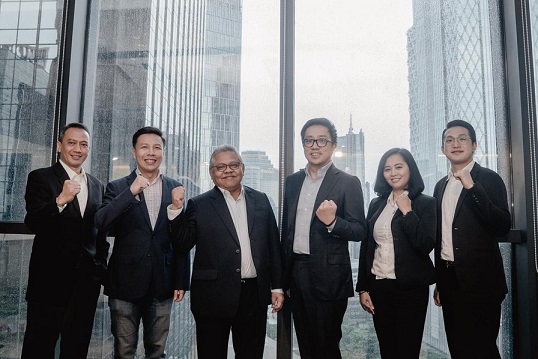 Directors and commissioners of BRI Ventures in 2020
Directors and commissioners of BRI Ventures in 2020As someone worthy of being mentioned seasoned entrepreneur, What can you say to technology activists who are currently struggling to build a business in the pandemic era?
To create a technology startup, you need a certain mindset and don't wait for the right time. Always think of the best way out of any situation. How can we make bad cards work. In fact, when we decide to build a business, challenges are something that has been anticipated. If you have to wait for the right time, how can you face the more challenges ahead.
I personally like to get my hands dirty, that's why I'm always involved at the operational level. However, I understand that it is time for young people to grow. I am currently focusing my energy on guiding and it is time to pass on the baton. We live in very exciting times. About 400 years ago, it was almost impossible to create such a large impact in such a short time. Technology creates equal opportunities and draws gaps closer for people to create a major impact.
-Original article in English, translated by Kristin Siagian
Sign up for our
newsletter
 Premium
Premium
